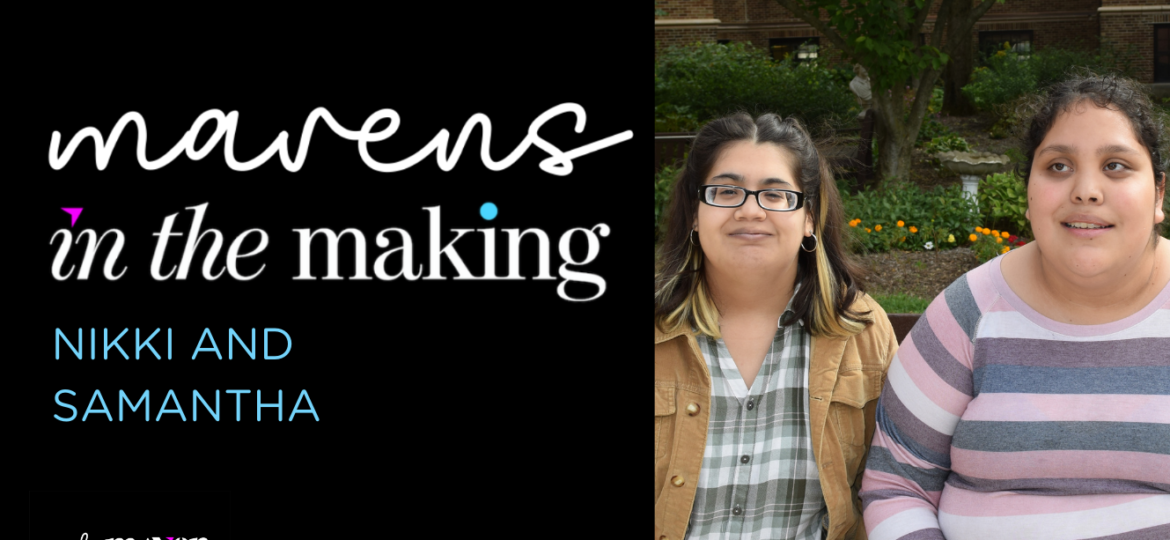
Welcome to Maven in the Making, where we celebrate the young women in our community who are poised to be future leaders.
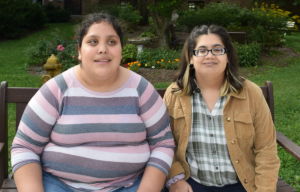
Nikki and Samantha are two young women with visual impairments who have recently graduated from the Indiana School for the Blind and Visually Impaired (ISBVI) and are currently being featured in the “Nothing About Us Without Us” video campaign.
According to the campaign, historically, the “Nothing About Us Without Us” phrase has been used as a motto by under-represented populations who want a say in how they are governed. This sentiment is also echoed by the No Limits Leadership Club, a weekly after-school program made up of high school youth at ISBVI, spearheaded by the Indiana Blind Children’s Foundation.
Running through Oct. 13, the “Nothing About Us Without Us” campaign focuses on four students, including Nikki and Samantha, as they share their dreams and voices to help break down stereotypes surrounding individuals with visual impairments.
You were both members of the No Limits Leadership Club at the Indiana School for the Blind and Visually Impaired (ISBVI). Can you tell us more about the club and why you chose to get involved with it?
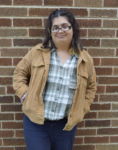
Nikki: How I explained it to my parents is that it was kind of like a non-fundraising activist group, advocating for blind and visually impaired people. On day one, we were taught about the Americans with Disabilities Act (ADA), disability history, and how businesses are still actively disregarding it — buildings are not as accessible as they should be and how a lot of social bias still exists towards individuals with disabilities. The No Limits Leadership Club mostly worked with theaters, museums, and studios to make them more accessible for us blind and visually impaired people.
Samantha: I was interested in Leadership Club because I liked how they advocate for disabled people in general. We want access to things that sighted people have.
You are both also currently featured in the “Nothing About Us Without Us” video series. How did you decide to be a part of that project, and were you excited to see the final product?
Nikki: The “Nothing About Us Without Us” campaign is a digital campaign sharing our voices, advocating for the blind and visually impaired community. Each of the students featured shares their dreams and vision for the future. Each of us are telling our stories and tearing down negative perceptions of us. My senior year turned out very, very different from what eighth grade me thought it would be. I ended up not only being in this club and having all the opportunities I was given to advocate for my fellow brothers and sisters of the blind and visually impaired community, but I also was given many high school opportunities and lived every high school kid’s dream.
It was definitely overwhelming too because I was never used to getting this type of attention. It felt good, but it was overwhelming while I was at school due to juggling all the classes and activities. I am happy that I can now actively share my voice.
Samantha: Over the years, I’d done a couple interviews with the Indiana Blind Children’s Foundation, the organization spearheading the Leadership Club. The process of being interviewed wasn’t really overwhelming for me but seeing the videos and knowing it was about me and my culinary interests was overwhelming — but I am glad I did it. I am empowering blind and visually impaired people to speak up and improving how sighted individuals view people with visual impairments and our abilities.
Nikki, you were both the student body president and the salutatorian at ISBVI, congratulations! What are your personal secrets to success?
Nikki: I hate to say it, but a lot of it has to do with the social standards of school. You know how there’s a lot of drama in high school? My number one thing was that unless it really involved me, my grades, or my friends, then I didn’t get involved with it.
A lot of these extracurricular activities and clubs also depend on your grades. So, I was over here grinding on all this schoolwork, and I had to stay on top of my game in order to stay in these clubs. I had to bust my butt off to keep good grades and stay out of unnecessary drama.
Samantha, I heard you have a love for cooking. What are some of your favorite dishes to make?
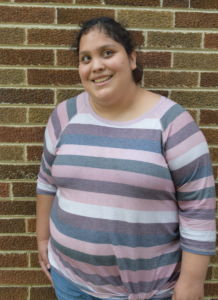
Samantha: I actually just started learning how to cook different things, so I make a lot of simple things like rice, chicken, vegetables, and pasta. I’m trying to branch out and make new things. I have an upcoming family meal that I’m making, where my dad is coming to Bosma Enterprises, a training program to prepare individuals with vision impairments for school and jobs. I have to cook a whole meal for us. So, I’m making a chicken and rice casserole, a fruit salad, and cheesecake.
What advice would you give other young visually impaired women that are looking to get involved in school activities?
Nikki: Basically, the same thing I said for the last question — work hard and stay out of drama that doesn’t involve you directly.
Samantha: Yeah. Just stay out of drama because it’s not worth it and focus on what you want to achieve in school. Also, take all the opportunities that are given to you because you never know what you could end up doing.
Now that you’ve both graduated, can you catch us up on what you’ve been up to and how you’ve continued pursuing your passions?
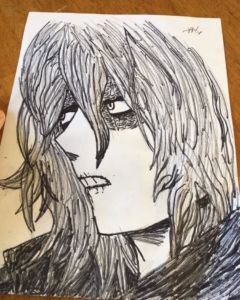
Nikki: I’m pursuing driving education. My doctor has now deemed me eligible to drive with my corrected vision. We’re probably going to start that course after I graduate from Bosma Enterprises because I’m also on the waiting list for Bosma right now. I’ve been making some art too.
Samantha: I’ve been at Bosma since June. I’m almost done with my four-month program there. I’ve been working on my technology skills. They provided me with a laptop, so I’ve been using that with JAWS screen reader. I’ve also been learning safe cooking techniques to help me while I’m getting better at cooking. I am working on my GED and applying for jobs too.
What would you like others to know about living with a visual impairment?
Nikki: We’re perfectly capable of doing things that sighted people can do — we just might need modifications.
Samantha: Living with a visual impairment is not that much different from people who can see. We can do most things that people who have sight can do, maybe even better than sighted people.
Stephanie Groves is the Executive Editor of Indy Maven.
Know a young woman who is a Maven in the Making? Nominate her by emailing editorial@indymaven.com.









